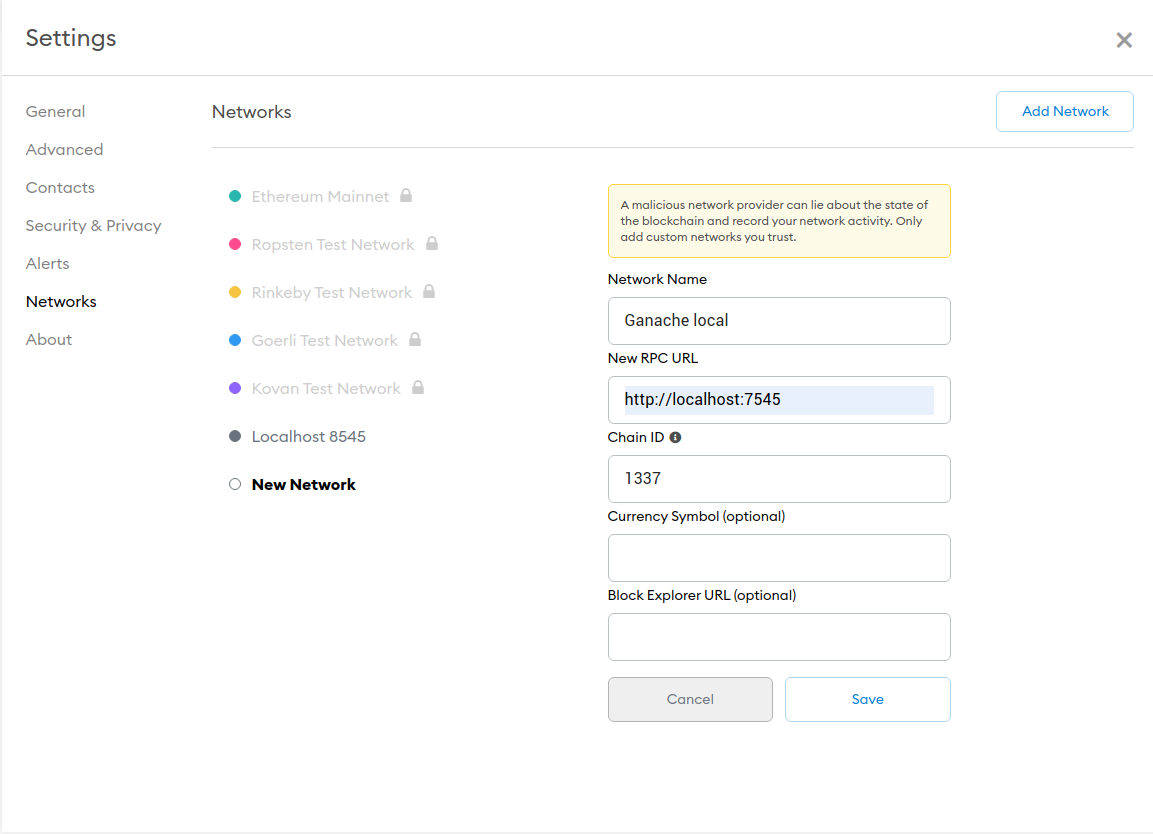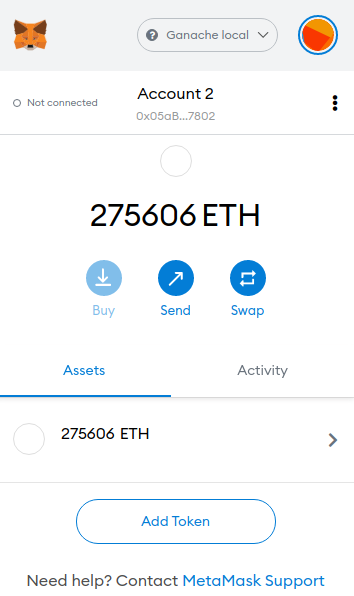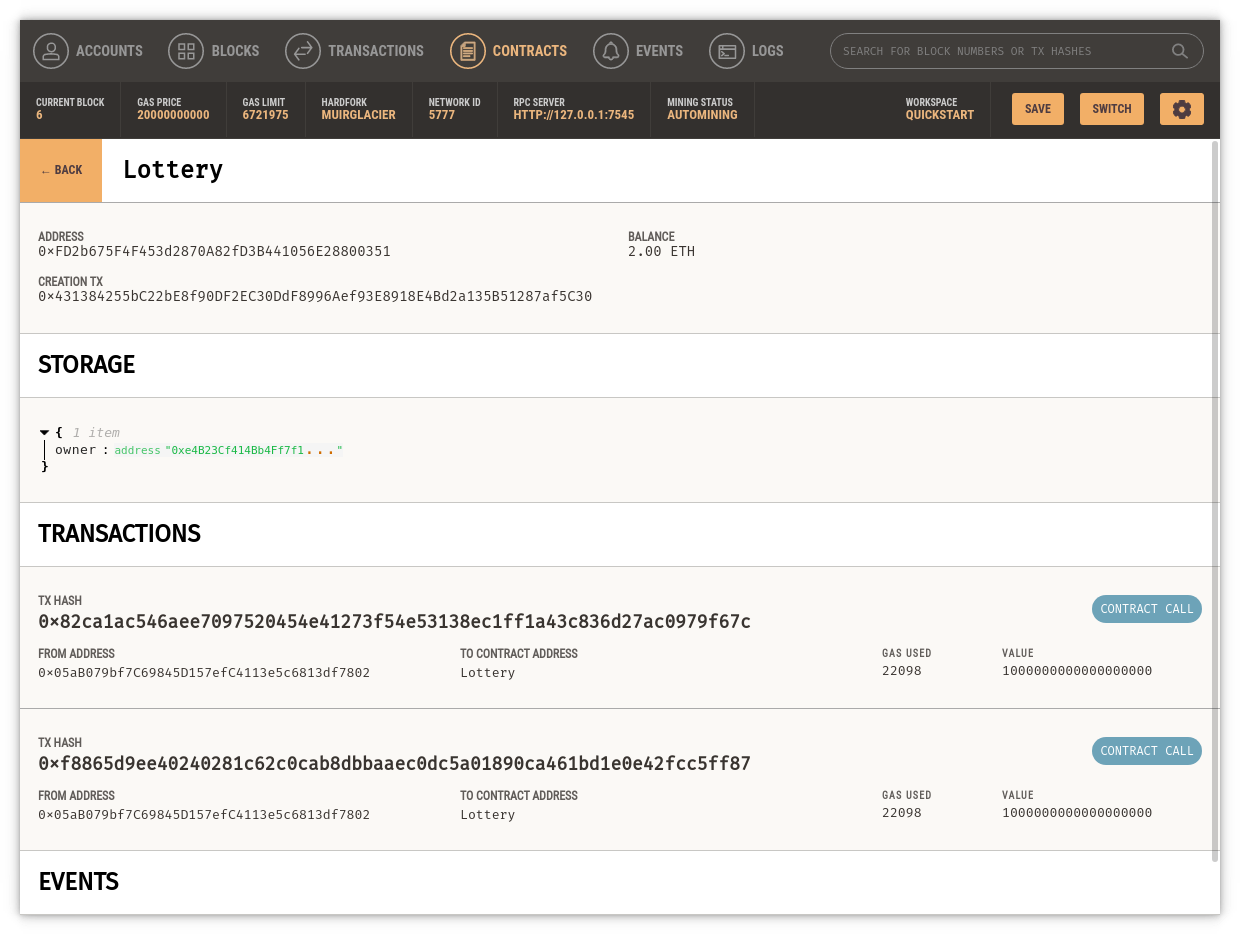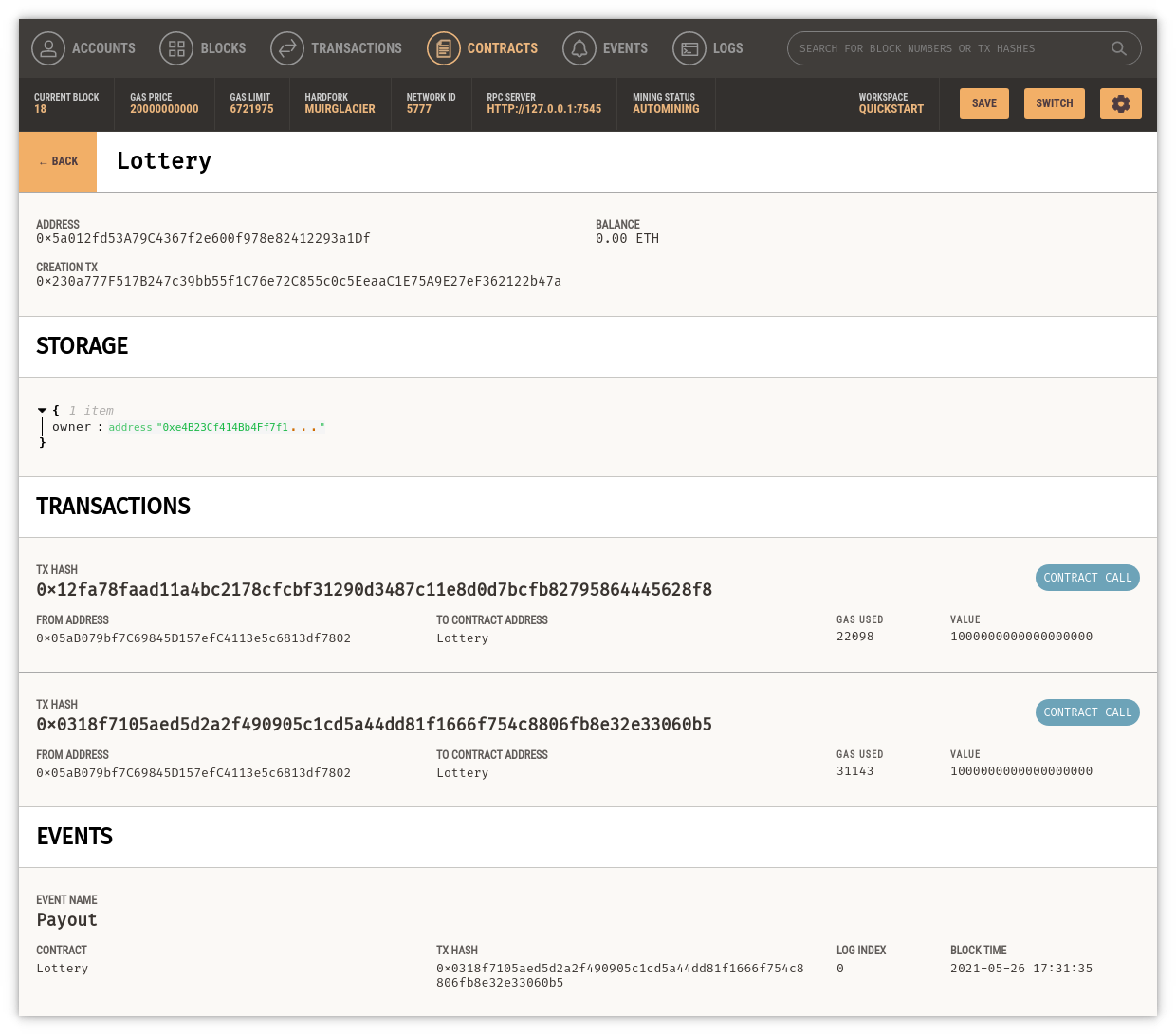The problem
There are many sites where you can gamble, obviously. However, when you sent premium SMS or make a bet you have no idea if there is a malicious actor who plays against your odds. Perhaps only friends of the owner can win, and you were not informed and wasted your hard-earned money. There is no way to enforce honestly on those kinds of sites or applications.
Solution
This problem could not be solved until creation of a blockchain and smart contracts. In short, blockchain is a read-only, publicly visible database. Any additions or modifications has to be approved by majority of a network which for many cryptocurrencies is close to impossible. Therefore, once money were transfer, there is no way to revoke this operation, even if they were stolen. Smart contract is a form of a program that uses properties of blockchain. It is immutable and publicly visible.
What does it mean for our fair lottery? It means, once the lottery was created no changes in logic are possible and anyone can audit code before betting. If the contract is done right there is no way the owner or anyone could exploit, change logic or steal the money from it. Even if you do not know how to program, someone else could review lottery logic for you to make sure it is honest and safe.
Writing smart contract
Now let us create an honest lottery where everyone has the same chance to win and no one can alter the logic behind winning. Yes, we are going to write some code. Also, I assume you have some basic understanding of coding and cryptocurrencies.
My lottery will work as follows.
- Player send money to smart contract lottery address.
- If the player is lucky there is 1% chance to win the whole stake.
- If player is unlucky money stays at the lottery and other players can win them by sending money to smart contract lottery.
Of course this just an example. In the real world a lottery would be a bit more sophisticated. For instance, everyone should send the same amount of money, but I want to keep this example to a bare minimum. Also, you are free to modify this example and build an application around this if you want to.
Prerequisites
- node
- npm
- MetaMask
- Ganacache
Initialization
First, lets initialize development environment for our first smart contract:
npx truffle init
This would create a couple of directories and files and will give us a quick start.
Writing contract itself
Let us create a new file named Lottery.sol.
First line contains a comment with license, we will use GPLv2.
// SPDX-License-Identifier: GPL-2.0-or-later
Next we specify language version. At the time of writing this post, this is the latest.
pragma solidity ^0.8.4;
Boring things done. Now let us see how actual contract can look like.
Keyword contract is a bit like class in OOP languages. In order to create it we use contract followed by its name.
contract Lottery {
}
Smart contract has its own Ethereum address where you can send money. When you do that, a special function receive with payable modifier is executed. Let us see how that could look like in our lottery.
receive() external payable {
require(msg.value > 0 ether, "You cannot send 0 eth");
if (isLucky()) {
payable(msg.sender).transfer(address(this).balance);
}
}
In first line, we require players to put some actual money. Then we check if was lucky and if yes we send all the money from smart contract balance that were accumulated till now.
How to implement isLucky function. This could be a bit tricky, because every person in mining pool should receive the same pseudo random number while keeping it unpredictable.
We will feed our hash function with, timestamp, difficulty and player details. Those things will always be the same for every miner, while being a bit hard to guess.
function isLucky() private view returns (bool ok) {
// not sure if random enough
uint256 random =
uint256(
keccak256(
abi.encodePacked(
block.timestamp,
block.difficulty,
msg.sender
)
)
);
return random % 100 < 1;
}
We are using here two new modifiers private and view. Former means function is visible only in current contract, just like in regular OOP, while latter means that function does not modify the state of our contract.
To ease debugging a bit, we can emit an event from our receive function winning branch and this will be saved in blockchain.
event Payout(address indexed _from, uint256 indexed _balance);
...
if (isLucky()) {
...
emit Payout(msg.sender, address(this).balance);
}
Last thing, we can set ourselves as owner of this smart contract. Later we could add some functions that could be executed only by us (optional).
address public owner;
constructor() {
owner = msg.sender;
}
When we deploy smart contract, constructor is executed only once, and it will set owner address to a person who deployed it.
Migration
Truffle supports migrations of contracts which is similar to versioning. We need to create file migrations/2_initial_lottery.js and put this:
const Lottery = artifacts.require("Lottery");
module.exports = function (deployer) {
deployer.deploy(Lottery);
};
Deploying
We want to test our work. First let us fire up Ganacache. This will create a test blockchain for us. Also, we need MetaMask to connect to our test blockchain to send some money to our newly deployed smart contract.
Go to: Settings -> Workspace -> Add project, select trufle-config.js and confirm with Save and Restart.
When you go to the contracts page you should see your lottery.

Ganache contracts page
The reason it says not deployed is that we did not deploy yet. Let’s fix that now.
npx truffle migrate
It would spit out some interesting things like how much it costs to deploy your lottery to blockchain.
Now your Ganache should look like this:

Ganache contracts page after successfull deployment
If you want to redeploy, because you made some changes or something, do:
npx truffle migrate --reset --compile-all
Running
At this point we will be sending money from MetaMask to our smart contract address in order to execute lottery on our test network.
Install MetaMask as a browser extension. Go through some initial steps and then click Ethereum Mainnet and then custom RPC. Fill out inputs as below.

1337 because it is so leet
Take one of the Ganache pre-created Accounts and copy the private key. Now go to MetaMask and click your avatar, then Import account and paste private key you just copied. You should see your balance now.

Well that is a hell of out money
Go to Ganacache again. This time open Contracts and copy address of your lottery and send money to this address via MetaMask. You need to put some higher gas limit, because default 21000 is not enough. 50000 should do the trick.

Tried two times, but no luck ;(
You can tweak the algorithm to allow 50% chance of winning. That way instead of making hundreds of transactions you can be lucky with just two. All you got to do is, change this line from
return random % 100 < 1;
to
return random % 100 < 51;
and execute this.
npx truffle migrate --reset --compile-all
Be aware that lottery contract address is different now.

Now that chances are 50/50, I got payout the second time
Conclusion
You see that it is fairly easy to implement honest lottery. Of course above example is not production ready, but it serves a good example of what could be achieved. It needs some more work, but I wanted to introduce some basic concepts of smart contracts. I also wrote some tests that are available on my GitHub. Did not want to get into details this time. This post is already pretty lengthy.
You can find whole project at: https://github.com/dolohow/eth-lottery